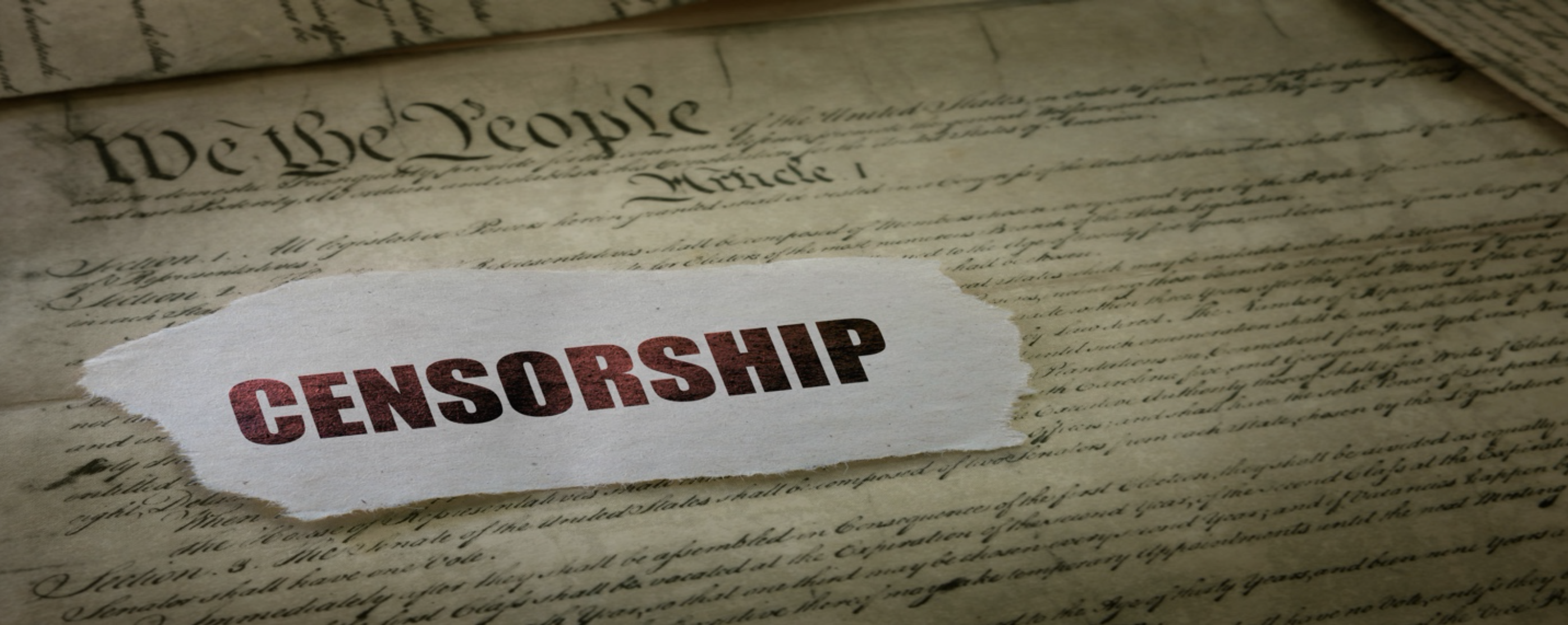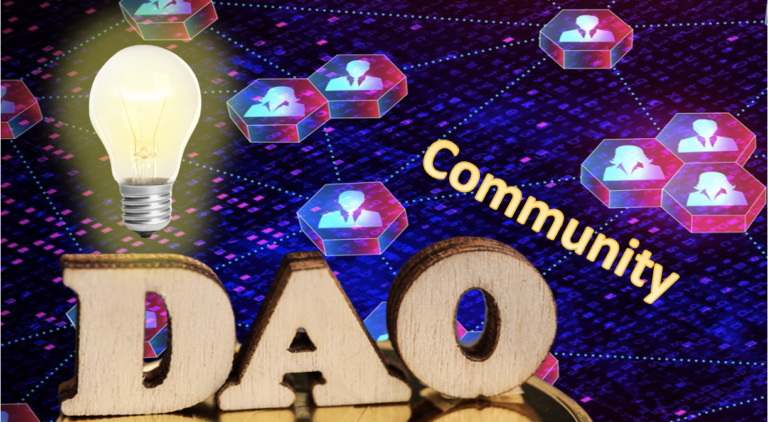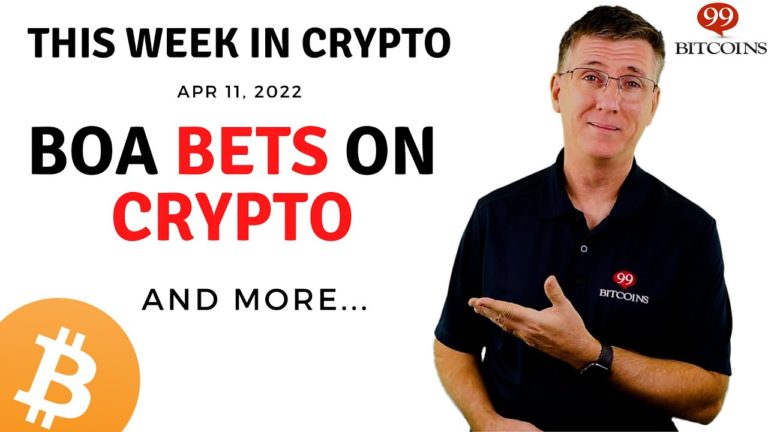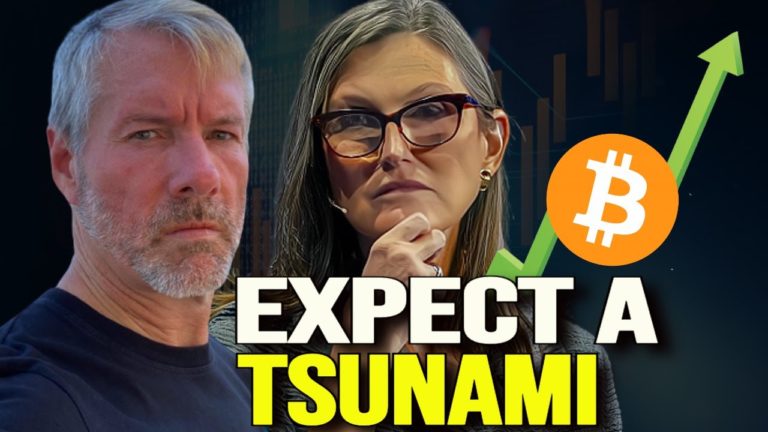The ongoing need for the continued development of digital technology and balancing those needs with the preservation of our constitutional rights, cannot be solved by either governmental regulation, or self-regulation by big tech firms alone.
The congressional hearing by the Committee on Energy and Commerce held on March 25, 2021 is an exemplary demonstration of how inept both the U.S. government and the technological heavyweights questioned are in confronting the myriad of challenges we face in our digital lives. There may be a better solution to technological governance. Blockchain technology and the cryptocurrency that it supports, are able to provide a way to help us reclaim our digital rights and trust in the technologies that serves us… so that we can retain our free speech without censure, our privacy without surveillance, and our safety from predatory or inappropriate content.
Leading up to this congressional hearing, Facebook, Google and Twitter had been under intense scrutiny by the U.S. government over the capital riots on January 6th 2021. The congressional Committee questioned these corporations CEOs for hours on this matter during the hearing.
In his opening statement, Chairman Frank Pallone, Jr. states, “We are here today because the spread of disinformation and extremism has been growing online, particularly on social media, where there are little to no guardrails in place to stop it. And unfortunately, this information and extremism doesn’t just stay online. It has real world, often dangerous and even violent consequences. The time has come to hold online platforms accountable for their part in the rise of disinformation and extremism.”
I wish to point out one key line here, that is “to hold online platforms accountable for their part in the rise of disinformation and extremism.”
And herein this statement lies the hobgoblin. We must ask, how is it that Facebook, Google and Twitter have become the gatekeepers of disinformation/information as well as what constitutes extremism. The simple answer is the rapid growth of their platforms put them in a precarious position of having to act and react in real time to inflammatory and pernicious events such as the capital riots, but it goes deeper than that. Our very government gave these corporations the legal authority to be these gatekeepers. Before these corporations had the clout that they have today, congress enacted section 230, which states the following:
“(C)Protection for “Good Samaritan” blocking and screening of offensive material
(1)Treatment of publisher or speaker
No provider or user of an interactive computer service shall be treated as the publisher or speaker of any information provided by another information content provider.
(2)Civil liability No provider or user of an interactive computer service shall be held liable on account of—
- any action voluntarily taken in good faith to restrict access to or availability of material that the provider or user considers to be obscene, lewd, lascivious, filthy, excessively violent, harassing, or otherwise objectionable, whether or not such material is constitutionally protected; or
- any action taken to enable or make available to information content providers or others the technical means to restrict access to material described in paragraph.”
Essentially, the likes of Facebook, Google and Twitter are protected against a range of laws that might otherwise be used to hold them legally responsible for what others say and do. But at the same time, it also grants powers to such platforms as indicated in section A to take action to “restrict the availability of material that the user considers to be obscene, lewd, lascivious, filthy, excessively violent, harassing, or otherwise objectionable.”
As you can see, section 230 both empowers these platforms to be the gatekeepers to determine what information is acceptable or not acceptable, but also protects them from responsibility from what people say and do on their platform.
How is any of this constitutional?
The red flags raised here are the very flags that we fought to create and preserve our democracy and our rights. Section 230 is a direct violation of our First Amendment, and it empowers these platforms to have unregulated control of our voices. It also empowers them to be the watchdogs of information/disinformation and appropriate content verses inappropriate content on the platform. And it was our very government through the above legislative that ceded these powers over to the platforms.
In his questioning, Chairman Pallone goes on to ask the representative panelists: Mark Zuckerberg, CEO of Facebook; Sundar Pichai, CEO of Google, and Jack Dorsey, CEO of Twitter, the following, “I want to begin by asking all three of you, if your platform bears some responsibility for disseminating disinformation related to the election and the stop the steal movement that led to the attack on the capital?”
Chairman Pallone, pressuring the CEOs to give a yes or no answer, Both Zuckerberg and Pichai dodged the question, while Dorsey stated: “Yes, but you also have to take into consideration the broader ecosystem, it’s not just the about the technology platforms that are used.”
Based on section 230, these corporations are under the legal protection that they are not responsible for what people say or do online, and they also have the option to censure material if they so choose. But this isn’t as simple as someone crying out disinformation such as, “fire,” in a crowded movie theater and people getting trampled at the door based on the lie. In the movie theatre example that we are all familiar with, no one would ever think to blame movie theater itself, instead of the individual crying out the false claim. But in the instance of the capital riot, when someone is screaming fire on social media, we are attempting to determine if the room itself is to blame, and not the individual who cried out “fire.” In other words, let’s blame the platforms that voices can be heard on.
In the matter of the capital riots, the “disinformation” purported by stop the steal movement, was claimed by members of our government itself. Donald Trump and Republics alike touted these claims as truth. And yet these platforms were expected to be the authority on whether or not this information was true or not? By asking this question, Chairman Pallone is at the same time assuming that it is not the responsibility of THE PEOPLE to determine information from disinformation, an instead puts the responsibility of the social media platforms.
Hence the problem, freedom of press as protected by the first amendment allows for public debate of information. If these platforms are the primary locations for public debate over information, and if our governments expect these platforms to at the same time censure “disinformation”, as indicated in section 230, before it is even definitively determined if is disinformation, then the ability for our voices to be heard in accordance with our first amendment rights is clearly being violated.
By way of Section 230, Facebook, Google and Twitter are expected to regulate themselves and the information they disseminate, especially on something as complicated as the topics discussed today: political extremism, information verses disinformation, censorship, and even vaccination.
To complicate matters even further, there definitely is an issue of amplification through the algorithms on Facebook, Google, and Twitter, which need immediate attention. To understand this better… in journalism, there is a concept known as proportionalism. For example, if there are 10 buildings burning down in a poor neighbor, but only two burning down in a rich neighborhood…the 10 buildings in the poor neighborhood should have greater coverage than the two burning down in a rich neighborhood. But in an environment where eyeballs generate dollars… if a certain type of public spectacle achieves more eyeballs, or even caters to a wealthier advertising base, the coverage may only extend to the rich neighborhood disproportionate to human suffering at hand.
The algorithms in these social media platforms are designed like self-fulfilling prophecies and enhance such disproportional coverage when it comes to informing the public. We only see the information as it pertains to what we believe. These algorithms work to gather eyeballs and momentum more than anything else; therefore, a dis-proportionate response can build, and such a response surges off of people’s fear and passions. The general population then just takes in whatever media is being fed to them through social media as truth (and only sees information catering to what they already believe based on the algorithm), without any kind of proper evaluation, or even hearing the other side of the argument. People dig in. And if we gather our information primarily through social media platforms, we are likely to only see an unbalanced presentation. Our already established beliefs and sentiments may be further inflamed, but do we get any closer to the truth?
If the social media platforms for disseminating information are untrustworthy, and if the public debate over information is an important component of our ability to keep power in check and retain our freedom of speech, by what means could we obtain proper information without having our voices censured while we do so?
Cryptocurrency may offer us a solution. But before we discuss this further, let’s look at another example in the congressional hearing to give further weight to the matter, Chairman Pallone goes on to ask: “Do you think the vaccines that have been approved for COVID-19 work?” To which, Zuckerberg, Sachai, and Dorsey answered in the affirmative.
A shocking question, given the context of the debate, but it enabled him to posture himself with a follow up statement:
“So, if you think the vaccines work, why have your companies allowed accounts that repeatedly offend your vaccine disinformation policies to remain up? I mean according to the report just 12 accounts on Facebook, Twitter and Instagram account for 65% of all the vaccine disinformation on your platforms. You are exposing tens of millions of users to this every day. I don’t have the stats on u-tube, but my understanding is that is similar. So, my question is that why in the midst of a global pandemic, that has killed over a half a million Americans, that you haven’t taken the accounts down that are responsible for the preponderance of vaccine disinformation on your platforms. Will you all commit to taking these accounts down today?” He even went so far as to call these twelve individuals “super spreaders,”
Going back to section 230, which allows the social media platforms to come up with policies and censure on what they consider “obscene, lewd, lascivious, filthy, excessively violent, harassing, or otherwise objectionable”, and then for the government officials to go and tear apart the leaders of these platforms for not censuring (or censuring too much)… we must ask: Why is it that these platforms have the power to decide what is information and disinformation in the first place? Or what should be censured or not censured? Shouldn’t that be in the hands of the public? The answer is absolutely and undeniably, Yes. Through public debate, we should be the ones ultimately deciding on what we consider as fact or fiction, or inappropriate enough to be considered a danger, predatory, or the equivalent of yelling fire in a movie theater when there is no fire. No government or social media platform should have the ability to do that for us.
If Facebook, Google and Twitter are allowed to control the forum for public debate on these matters, and the platform itself will skew people in the direction of whatever their current opinion is, or will allow themselves to be strongarmed by the government in their decision making on censure-ship: How are we ever to going to arrive at a truth that we can believe or rely upon? The government has been no help in this matter, as they are already attempting to control the enforcement of such censorship, by putting the onus of such censorship on platforms from which much of their information derive from (as shown in the congressional hearing and legislation like section 230), the very government that is supposed to protect our rights, is ceding the power of that protection to self-interested corporations. And our civil liberties suffer.
The American way of corporations has always been to just act and worry about the consequences later. They polluted our pristine water; they have contaminated our food supply; they have misinformed us over tobacco usage. Why would a government empower corporations through section 230, knowing that corporations will do what corporations have always done: increase, and increase some more through the tools they have available, without much thought as to the ripples in the pond… all of the aftershocks.
And now Congress puts all kinds of pressure on these social media conglomerates to take responsibility of the aftershocks, without much thought as to what those aftershocks are, and what needs to be done to counter them. Congress certainly isn’t taking responsibility for ceding the people rights of free press and free speech over to corporations through section 230. What ultimately is happening is our rights are being taken away as a consequence. Instead of rolling over to Congress and taking down sites, the corporations running these social media platforms should at the very least stand up for free speech, examine the unintended consequences of their algorithms, and certainly not create policies over disinformation/information, as that power should remain with the people.
Is there a solution? Within the era of digitization, how can we take back our voices on these platforms and ensure that our believes have a fair, democratic platform to speak from?
Cryptocurrency, through consensus and proper protocol governance, offers a solution.
In technology, a role has been identified as protocol politicians, who are people who care and stand up for our digital rights to ensure that the code running the technology syncs with the interests of those running the platform. They will be the champions of digital rights ensuring the technology that is becoming more and more ingrained into our lives, is built in such a way as to protect our interests. Of first order, our digital rights to free speech, privacy, still needs to be hashed out in public forum to define what those rights are. The contract for the web has offered us a start, but the proper debate and discussion from our regulatory bodies has not been completed. The protocol politician will first have to have a clear understanding of what our digital rights are before they can determine if a social media platform is violating them.
In this form of digital governance, it will be the role of the protocol politicians to ensure that platforms are maintaining our digital rights. And because the press and online media in general has a role to play in keeping our governments in check, governments cannot be the ones determining what qualifies as information or disinformation; nor should social media platforms. The social media platforms must have oversight by protocol politicians to ensure that what qualifies as information or dangerous disinformation has been determined by the people who use the platform. Hence the protocol politicians will examine code and give clear communication to the users of the platform as to what that codes means to them in terms of their digital rights. Are their algorithms built into the code that improperly self-reinforce the news they see based their interests, rather than a proportionally balanced news feed?
For example, let’s imagine a platform run on a blockchain. Because your everyday person cannot understand the code working behind the scenes on this platform, the protocol politician will be responsible for reviewing the protocol and communicating the implications of that protocol to the users of the platform; the protocol that is determined to be used will handled through a voting system on the platform. Thereby, the users of the platform can feel confident that their digital rights are not being violated, that they are fully aware of how the information they receive is being generated. And if their rights are being violated, the platform could be identified by the protocol politicians as being in violation of such rights, which would have legal and public consequences, such as a boycott.
In this manner, through cryptocurrency, code can be built into a blockchain that can be governed by the people that use it. The protocol politicians, who will act as interpreters of this code, will be able to determine the following: if the platform respects user’s digital rights such as free speech and privacy, does the platform unlawfully censure information without consensus by the people? Any changes to code can be put to a vote to the users of the platform, and the protocol politician can review that code. Therefore, the protocol itself, controlled by the people that run it, can ensure there are no algorithms built into the system that will dispel information in a disproportionate way, or violate people’s civil liberties.
The governance over our digital rights in our modern world of technology is currently broken. It has become a comprised power structure that has ceded control of our voices to other powers, namely the technologies that we rely on to have a voice. Our only chance to have a government to protect our civil liberties may be to build those liberties into the technology platforms themselves, so they cannot be stripped of us without consensus. Instead of relying on political hacks whose principles can very well be compromised, we can build those liberties into a protocol run on a blockchain.
As this will take time, there is an immediate need to establish clearly what our digital rights are, and for protocol politicians to be empowered to examine the code of current dominant platforms. Once such an examination is complete, they can then determine the instances where our rights are being violated, such where algorithms are fostering dis-proportionalism, or belief amplification through inflammatory news feeds aimed solely at the reinforcement of pre-existing ideas, or even blatant disregards of free speech where sites content is automatically removed based on key words. These are just some examples, in essence our digital rights must be clearly defined and established, then code and policy can be analyzed in relation to these rights to ensure these platforms are working for our benefit.
It was sad to see this congressional hearing. Instead of cooperation and a meaningful discussion about preserving our human rights: maintaining truth, freedom of speech, and creating an environment for proper public debate over matters; instead, there was an intent to prosecute on the public stage, and more finger pointing rather than a meaningful discussion on the changes needed to solve a deepening problem in our culture.
These are difficult problems to solve, in part because we have not addressed the fundamental afflictions posed by the internet and social media technology in relation to our civil rights for too long. Also, the complex of nature of code and the platforms the code runs on has not been addressed, interpreted or understood by our representatives because the learning curve needed to understand how the code effects our lives is too great. Some of this code requires an advanced degree to understand. We can’t just blindly trust that the internet conglomerates will work on our behalf, and that their code is in compliance with supporting our human rights. This is where protocol politicians come in to be able to review the code and spell out how our lives are impacted by the code.
The line drawn between disinformation and information has always been an historical means of not accepting challenged truths, which often comes with severe consequences of oppression. It pains me to see this happen in our Democracy. Take Copernicus, burned at the stake, for providing a much better model of the universe at the time. I think we’re seeing something similar; people being punished for the conclusions that they have come to. It shouldn’t matter if the sun was ultimately the center of the universe or not… what matters is our right to believe and speak about what we believe, and debate publicly without fear of backlash for describing why we believe as we do. It’s also our right to feel confident that our sources of information are controlled by us, and not being manipulated by government and corporate agendas backed by billions of dollars. Again, this is not a matter of whether a belief is true or not, it is a matter of us retaining our democratic right to publication of information. Over sensitive issues where lives are at stake, conclusions must be drawn from proper public debate before any kind of censure-ship… not at the whim of governments and social media platforms that have the power to control the information. It is us, we the people, and only us who should ever get to draw such lines.






